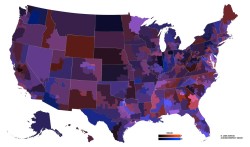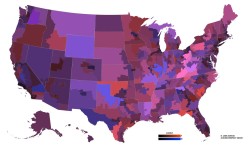Monthly Archives: June 2014
Starbucks is getting some good publicity for helping it’s employees go to college:
Arizona State is one of the nation’s largest universities and has grown rapidly in recent years. Crow said it has about 65,000 students enrolled in programs at the main campus in Tempe and others in the Phoenix area. Another 10,000, he said, are enrolled in online programs that began three years ago. The university has 40 online undergraduate degree programs, in subjects ranging from art history to electrical engineering.
The Starbucks initiative could help double the university’s online footprint. Crow, who is one of the nation’s more ambitious university leaders, said Arizona State’s online operation is of a scale comparable to those of Penn State University and the University of Maryland University College.
Crow said he was pleased to collaborate with Starbucks on a program that aims to deliver “a first-class college education.” Arizona State, he said, “has the vision, programs and scale to deliver it to Starbucks employees in every part of the country.”
Burt approves, as it coincides with his own views that employment should not be considered a contract.
I would have expected to respond to this sort of thing very favorably. And yet I find my actual response to be more mixed. Not that I think Starbucks is doing anything wrong here – not in the least – but that something is sort of amiss.
As far as online colleges go, Arizona State University has one of the most expensive programs. It’s been a general disappointment that brick and mortar universities have not used online education as a means to reduce costs (suggesting, in my view, a profit center). Especially so, though, witht he big name universities like Arizona State and Maryland. Others, owing perhaps in part to their lack of brand and the fact that they serve less wealthy states, have done better. While Arizona State’s online tuitions are $500 an hour, Troy University’s are closer to $300 or so and North Dakota is closer to $200 (with other North and South Dakota schools being between $200-300). The normal in-state tuition discrepancy isn’t nearly this large.
Starbucks, meanwhile, is a relatively premier employer for those in the service industry. Contrary to what some people think, it’s not actually easy to get a job there. Leaguer Michael Drew has reported as much, and that corresponds with my experience. So while you may be dealing with people who have been “reduced” to service industry jobs, you’re still dealing with a cut above the rest. And now they have easy access to a great school that seemingly put up cost barriers to everyone else.
And Starbucks is getting a tax benefit for doing so, as college tuition (similar to health insurance) is a tax-free form of compensation.
Which leads me to the niggling concern that as a stop-gap for us having to deal with escalating college costs, we may have price-insensitive employers striking deals (negotiated rates) with universities. Making yet another thing tied to who you can get a job with. With yet another bypass of dealing with the rising and inflated costs of university.
 In Tampa, a family ate a steak that was laced with LSD and while at the hospital had a baby who was not a hallucination.
In Tampa, a family ate a steak that was laced with LSD and while at the hospital had a baby who was not a hallucination.
Emily Bazelon and Daniel Drezner point out that there are tradeoffs involved when trying to combat sexual assault on campus, and have some sensible suggestions. Shorter version: Higher standard of proof, but harsher punishments.
Related to a recent post of mine… Kay Hymowitz says that parental self-expectations are making parents miserable.
Marriage rates track with all sorts of good outcomes on both an individual and societal level. Steve Waldman thinks that promoting marriage on that basis is a bad idea. Education tracks similarly, and Scott Sumner explains why promoting education on that basis is a bad idea.
Many in Europe want to become what the Ukraine is trying to escape.
Idahoans are having lots of sex to get pregnant. Washington DCers, maybe less so.
Intra-Euroland immigration into the UK is complex. While Polish Plumbers have become a shorthand, immigrants from different places have different effects and different receptions.
Norwegian Air wants to making international flights cheaper for Americans, and United and Delta want to stop them.
Mozilla is going to sell a $25 smartphone in India. I wonder if it’s a better or worse phone than some of the old smartphones I have around here that I have no idea what to do with.
Reihan Salam thinks we need to hold colleges accountable for student outcomes. It’s an interesting thought, but for better or worse it strikes me as an incentive for colleges to pick their students wisely.
I’ve commented in the past that we don’t raise the gas tax because people are stubbornly opposed to it. I could be wrong, it turns out.
The Patent Board has spoken:
The United States Patent and Trademark Office has canceled six federal trademark registrations for the name of the Washington Redskins, ruling that the name is “disparaging to Native Americans” and thus cannot be trademarked under federal law that prohibits the protection of offensive or disparaging language. {…}
“The Trademark Trial and Appeal Board agreed with our clients that the team’s name and trademarks disparage Native Americans. The Board ruled that the Trademark Office should never have registered these trademarks in the first place,” Jesse Witten, the plaintiffs’ lead attorney, said in a press release. “We presented a wide variety of evidence – including dictionary definitions and other reference works, newspaper clippings, movie clips, scholarly articles, expert linguist testimony, and evidence of the historic opposition by Native American groups – to demonstrate that the word ‘redskin’ is an ethnic slur.”
Neil Irwin argues that this is the beginning of the end.
It has been assumed, by myself and I believe others, that this ruling – if upheld – would mark the end of the team name. Having thought about it more, I am not so sure. The six trademarks that the board revoked all specify the team name. The team would just redub themselves The Warriors and keep everything else – including the Indian head on the helmet – the same. Or they could simply not do that.
The irony of this ruling is that it doesn’t mean that Dan Snyder and his club can’t use the name, but that anyone now can. If they changed their name, tens of thousands of people who are too cheap to buy Washington Warriors shirts could instead wear unauthorized Washington Redskins shirts that the football team cannot stop anybody from making. This is in contrast to the North Dakota Sioux, who in addition to retiring the name, did retain the copyrights to prevent that sort of thing from happening.
More to the point, though, the rest of the Redskins trademarks are still in tact. You still can’t do the Indian head. You can’t replicate a jersey beyond the basics (which I am pretty sure could be done anyway) so long as they replace the “Redskins” with “Washington”. You can’t replicate their hats. The vast majority of their merchandise sales would be entirely unaffected.
For it to be otherwise, the board would have to say that not only will they deny that trademark, they will deny all trademarks of any organization that uses an offensive name. Among other things, that raises First Amendment issues as that gets into punitive territory. (The police have no positive duty to protect you, but they can’t pass a law saying that they will specifically refuse to protect people who engage in unpopular speech.)
Most owners would probably not go that route. It does seem, increasingly, that the writing is on the wall here. Snyder is stubborn, though, and he may well defy it if the NFL itself doesn’t intervene (which it could). Even so, I naturally resist Irwin’s (or anybody’s) declaration of what the Redskins will “have to do” without demonstration of actual leverage to require them to do it.
I was about to say that it reeks of talk in the late nineties and early aughts that the US would just have to give up control of the Internet because the world was demanding it. But Obama, for no real reason at all, did end up giving it up. Which, despite all of what I say above, may end up being the result here.
Note: FWIW, Mitch knows of my Will Truman identity and could be reading this.
Greeks have it good:
Researchers at Gallup believe they found a formula for a good life after college, and students in fraternities and sororities are more likely to follow it than most.
The polling firm interviewed tens of thousands of college graduates about their well-being after college. They found a few steps students can take in college that predict whether they will be thriving financially, socially, and in the workplace after they graduate. Put simply: “Find professors who excite you and make you care. Get very involved in an activity. Find a mentor. Get an internship. Work on a long-term project.”
Students who were in fraternities and sororities were more likely to do all five — and more likely to say they had a sense of purpose at work, that they had strong connections to friends and family, and that they like where they live, Gallup said this week.
You always have to worry about confounding factors, even if they control for the most obvious ones. This definitely strikes me as one of those cases where the confounding factors may not be measurable.
Even keeping that in mind, though, I believe it. Fraternities and sororities can often encourage the type of participation that sets people on the right course.
One of the surprises when we went to Clancy’s ten year reunion was that there were people there who not only knew of me, but had stayed in my house! Specifically, they were friends of my brother. When we were out of town, they had stayed in our place in Estacado for some reason or another. It was none-the-less strange at the meet-and-greet party when someone said “Dude, this is Mitch’s brother!”
Indeed I am. Small world.
Apparently, he was a part of the crew at Mitch’s bachelor party, and that was how he knew me by sight.
Mitch was never as socially awkward as I was, but he became someone else entirely aRightly or wrongly, I credit a lot of that to his joining the fraternity in college. The fraternity he joined is not actually a very big deal at the University of Deltona (DU), where he attended. I’m not even sure they even still have a house there.
His fraternity is, however, a really big deal at Southern Tech. It is one of the most well-known and is kind of infamous. It’s the sort of fraternity that I never would have gotten into… except for the leg up I might have gotten by virtue of having a brother who was not only a member (at DU) but was its treasurer. I don’t know how well that would or would not have translated into membership at the Sotech chapter, but I sometimes think it would have made a huge difference.
I am not particularly “fraternity” material, in many respects. My saying “it’s not for me” would surprise nobody. But my brother did invite me to various fraternity events at DU and I had a whole lot of fun. I did like to drink! I did enjoy being in the company of ladies.
Even so, the very thought of joining a fraternity is well outside my comfort zone. Before he thrived in one, I would have guessed the same of Mitch. Which is sort of the rub. Perhaps pushing me outside of my comfort zone would have spurred enormous growth. It might have expanded my comfort zone to the point that I would be a different kind of person with a more society-preferred public persona. I might be less the kind of person that says things like “society-preferred public persona” and more like a non-alien that people are more comfortable around.
A lot of what I am thinking about by people, of course, is girls. Especially as I used to think about it before I found my happy ending. These days, though, it has less to do with that and more to do with the difficulty I find in meeting people more generally.
I sort of chose my path, and my path was along the lines of “weird dude.” Bird of rare plumage. Different drummer beatmarching. However you want to put it. Which maybe it was always supposed to be. Yet though it often doesn’t feel like it, I have a lot in common with my brother who turned out very differently from me.
Were our differences always there? Or did I just never join a fraternity?
Vox has a piece outlining some of the changes that are coming with the next iPhone. A lot of it is unimpressive and that I don’t care all that much about. Some of it is kind of cool.
I do think it’ll be great to have more interoperability between Macs and iPhones, which is something that I will probably never have since my phone OS and computer OS are done by different people.
I definitely applaud this move:
The onscreen keyboard on original iPhone was a breakthrough, but in the last seven years Apple’s competitors have come up with innovations of their own. iOS 8 makes two major changes that Apple hopes will help Apple regain the keyboard lead. First, a new technology called QuickType attempts to guess which word the user will type next and allow her to select it with one tap. The technology learns the user’s typing style, even customizing the selections depending on who she is talking to.
Users who aren’t satisfied with the iOS keyboard will have the option to ditch it altogether. For the first time, iOS will support third-party keyboards.
This is, of course, old hat for Android users (except the part about customizing depending on who you are talking to. But considering that I criticize Apple products for their unwillingness to let third-party devices on, I should applaud them when they become willing.
At this point, I am actually still using the default Samsung keyboard. They finally got it right. Before upgrading to my current phone, I bounced around a bit from SwiftKey and TouchPal. The frustrating thing is that while all of these keyboards are capable, I have yet to find one that I am really comfortable with, despite having no physical keyboard for quite a while now. I had genuinely expected that I would get settled in. Which I might have, if I’d just stick to one. Which is an advantage to what has historically been Apple’s approach.
Apple is getting some criticism for getting rid of the audio jack:
The tech giant is said to be considering doing away with the headphone jack when the iPhone 6 comes out this summer — and the rumors have even die-hard Apple customers wondering if it’s time to iTune out.
“I have a pair of Beats headphones that cost hundreds of dollars,” griped David Fu, 24, outside the Apple Store on 14th St. “They would really piss off a lot of people if we couldn’t use headphones like that anymore.”The iEverything faithful are still sore from two years ago, when Apple replaced its 30-pin input on iPhones with a smaller Lightning connector.
Suddenly all those expensive charging units, external speakers and docking stations didn’t work with the new iPhone — unless customers bought a $30 adapter.
With regard to the chargers, Apple would be more vulnerable to criticism if they did it more regularly. But technology changes, and improves, and it’s perfectly reasonable to change charger standards every now and again.
I also think that some of the criticism about the headphone jack is probably misplaced. Apple people are obsessed with space-economical design and the headphone jack takes up space. With the right adapter, it’s usually going to be a non-issue. Keep the adapter more-or-less attached to the headphones (most people aren’t going to use the headphones for much else. Maybe have another adapter for the car, which could actually be more convenient for some people if they are able to plug their car into power and audio with a single click.
Some of my old HTC phones didn’t have separate headphone jacks. I was excited when I finally did, but as I put my phone on the dash of my car and plug it in I realized – long before hearing about Apple’s intentions – that the process would be one step shorter with a dual jack.
 Can we use lasers to catch drunk drivers?
Can we use lasers to catch drunk drivers?
You may have seen a map of “74 school shootings since Newtown.” It’s… highly dubious. [More]
If democracy is the worst kind of government except all others, can we come up with a better one? io9 has twelve alternatives from science fiction.
We think of good dads mostly as being good for their sons, but they affect their daughters, too.
Single fatherhood is becoming more common, up from 1% in 1960 to 8% now, and from 14% of single-parent households to almost a quarter.
Only 3% of Swedes lead unhappy lives. Yet some people leave Sweden, though, and here’s why.
Amazon is relegating Hachette’s wears until or unless Hachette agrees to terms more favorable to Amazon. Commentary on the issue has almost all been sympathetic to Hachette. At the Guardian, Barry Eisler takes a different view.
Black markets on the web may lessen drug violence.
Non-complete clauses are becoming more common, and Alex Tabarrok argues this represents a threat to innovation.
Lorenzo lays out the case for small nations.
Bobby Jindal is virtually deregulating the sale of homemade foods!
Job licensing in service-oriented industry inflates wages by fifteen percent. Vox has a run-down. Interestingly, it’s more common in the South and West than the Northeast.
Cross Canadian Ragweed – Look At Me from Hartmut Braeunlich on Myspace.
It’s frustrating has heck that this video isn’t available on YouTube or anywhere else but MySpace, but here it is. It’s one of my favorites. Better done than a lot of their more professional videos. A great song, to boot.
Luke DuBois has a large number of maps comparing men and women in various respects. The first map is loneliness and last map is the Virginity Map:
The loneliness map is about what I would expect it to be. In the male-heavy west, it’s more blue. In the woman-heavy east, it’s more red. The virginity map is more interesting. Less uniformly blue than I would expect, given what a lot of people in our corner of the ‘sphere say about such things. Less uniformly red than I would have guessed, given that it’s based on self-disclosure. It’s slightly more blue than red with some blue areas most notably along the border where there are presumably young men who came over alone. North Dakota and Alaska are pretty predictable. Wyoming was quite a surprise.
The liberal and conservative one was interesting, especially given the redness of the former.
Eastern Colorado women appear to be quite open about their craziness.
The least surprising? Women using the word “happy” a lot.
I’m really surprised that people are actually putting the word “virgin” on their profiles. It’s also weird that they would put the word “lonely.”
This is all, of course, rather unscientific. Especially the self-reporting aspect. I’m also less than entirely clear about the methodology used. But hey, maps are fun.
Matt Phillips explains that the use of personal checks has been in radical decline:
The usage of checks as a payment system has plummeted in the U.S. in recent years. In 2000, checks were used in more than 40 billion transactions, according to a recent report from the Federal Reserve’s Cash Products Office. That number is down to less than 20 billion, according to the Fed’s most recent numbers, which are based on a survey conducted in October 2012.
When it comes to American payment preferences, checks run a distant fourth. (At least when you measure the overall number of transactions. Checks are used for about 19 percent of the value of all purchases, slightly higher than debit or credit cards.) {…}
While the number of check payments continued to rise into the mid 1990s—they peaked at an estimated 49.5 billion in 1995—checks began to lose significant market share to alternative forms of payment like debit and credit cards and direct, electronic, automatic clearinghouse payments (ACH).
The trend toward electronic payments only gathered pace, and by 2003, the Fed estimated (pdf) that other forms of payment had overtaken checks in usage. And by 2006, checks accounted for barely one-third (pdf) of non-cash payments in the U.S.
This had more resonance for me several years ago than it does today. When I lived in Cascadia and Estacado, check-writing was more or less non-existent. When I had to write a check, it was actually a big ordeal because it meant that I would have to track down the checks, the envelopes, stamps, and so on. The infrequency of all of this meant that I didn’t have to be organized about where these things were. And I wasn’t.
That changed when we moved to Arapaho, where suddenly checks were required for just about everything. Neither the power company nor utility company accepted electronic payments. Nor did trash pick-up, though that was quarterly instead of monthly. Notably, the monthly charge for all of these things changed on a regular basis, so I couldn’t do the automatic payment system through the bank (where they essentially cut you a check). Strangely enough, I actually found this to be reasonably convenient. Once I was in the habit of writing checks, whether I was writing one or four didn’t really matter so much. With four, I could develop a system – mostly a matter of having a station for my check-writing stuff.
That continued when we moved out here, where once again neither the power company nor city utilities accept automatic payments.
Eventually, one would assume, all of these recipients will accept electronic payments. But prior to moving to Arapaho, I’d assumed that almost all of them had. The statistics about the relative decline in usage are a bit misleading, though. It’s not just that people are paying with credit cards and debit cards instead of checks, but they’re doing so instead of cash. Despite the fact that I currently write four checks a month (power, utilities, rent, storage), it’s a distinct minority of the non-cash payments I make, due mostly to a decline in cash payments in favor of plastic.
Has anyone been having pop-up ads or splash pages while visiting my site? I have not signed on with advertising partners. So if this is an issue, it’s not because I’m selling out! Let me know and I will try to get to the bottom of this.



